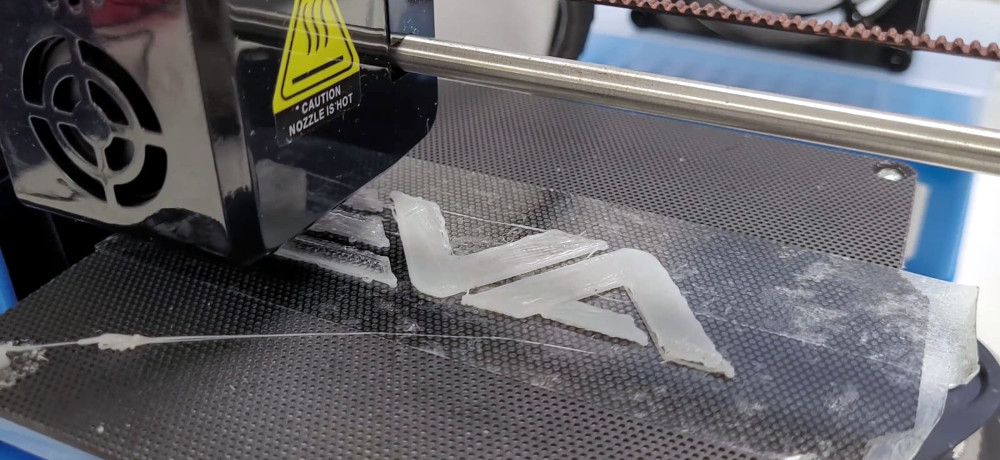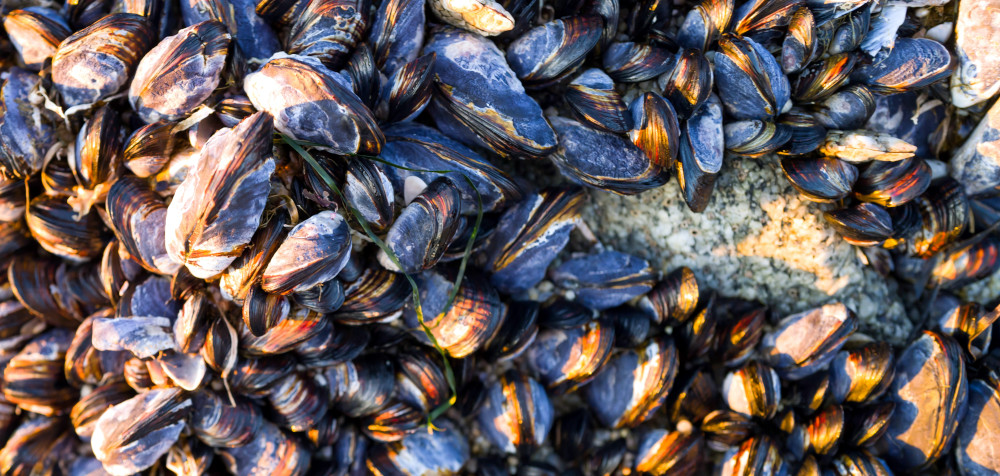As we well know,
plastic has become one of the world’s most prolific polluters. According to
the OECD, 22 million
tonnes
of plastic waste leaked into the environment in 2019 — a number projected to
double by 2060 — and roughly 20 million metric
tons of that ends up in the world’s
waterways every year.
New strategies for tackling the issue continue to emerge from innovators
large
and
small;
and until an enforceable plastics
treaty
is in place and brands and plastic producers turn their commitments into action,
academic researchers continue to concoct potential solutions.
Scottish startup creates ‘smart’ plastic that self-destructs in water
 Image credit: E.V.A Biosystems
Image credit: E.V.A Biosystems
University of Edinburgh startup E.V.A
Biosystems has developed a plastic that can sense
when it’s in the ocean and break itself down without creating microplastics.
E.V.A’s solution adds special bacteria to conventional plastic that can detect
when they’re in aquatic environments and activate enzymes that break down the
material. And unlike when plastics slowly degrade in landfills or aquatic
environments, or even during most recycling
processes,
E.V.A said the process does not create harmful
microplastics.
“We’re all struggling with plastic pollution; and while there are many people
developing biodegradable
plastics,
they’re too expensive and only make up about 1 percent of the world’s plastic,”
said E.V.A founder Dr Alexander
Speakman, who received
his PhD in Bioengineering at the University of Edinburgh. “Our technology works
with existing plastics, making them ‘smart’ enough to break down when they end
up where they shouldn’t be, like in our oceans or landfills.”
The new solution won top prize in the Net Zero category at this year’s
Converge
Awards
— which highlight new Scottish academic innovations each year. E.V.A. earned a
£30,000 cash prize, as well as £19,500 of in-kind business-development support
from Scottish energy company SSE (which sponsored the award) and Converge’s
network of industry partners. The company also took home the £20,000 IBioIC
Award — presented to a biotech business with a product or process that
addresses a real market need.
Rice researchers develop sticky, biomimetic solution to marine plastic pollution
 Image credit: Georg
Eiermann
Image credit: Georg
Eiermann
Meanwhile, in the US, scientists at Texas’ Rice
University have been inspired by nature’s adhesive
genius — in this case, the sticky power of mussels — to create bioengineered
microorganisms with powerful cling capability that could transform environmental
cleanup. By combining this amplified adhesive power with an enzyme that breaks
down harmful plastics, their discovery offers a potential new tool for tackling
plastic pollution — especially, in marine environments.
According to the research, published in the journal, Small
Methods, the
innovation could also curb biofouling — the accumulation of microorganisms,
plants, algae and small animals on submerged surfaces that can damage ships’
hulls, underwater structures and pipes — addressing long-standing challenges in
industries ranging from shipping to medicine.
PET, a popular plastic for packaging that makes up the majority of global
plastic
pollution,
is notoriously resistant to degradation — taking centuries to decompose. The
Rice team’s innovation allowed it to create adhesive bacteria and proteins that
could help countries worldwide more efficiently decompose PET.
“Very excitingly, our research holds promise for addressing the growing problem
of plastic pollution in the US and across the globe,” said study leader Han
Xiao — director of Rice’s
Synthesis X Center; an associate professor of
chemistry, biosciences and bioengineering; and a Cancer Prevention and
Research Institute of Texas (CPRIT) scholar.
Tackling plastic pollution
The engineered bacteria were designed using genetic code expansion technology —
incorporating a natural amino acid called 3,4-dihydroxyphenylalanine
(DOPA), responsible for mussels’ adhesive properties — which significantly
enhanced their ability to bind to PET surfaces.
The altered bacteria, tested on PET samples at 37°C, demonstrated a 400-fold
increase in adhesion. The bacteria was then united with an enzyme called
polyethylene terephthalate hydrolase to break the material into smaller, more
manageable fragments — resulting in what the researchers call a significant
amount of degradation of the plastics overnight.
This approach could provide a novel solution to plastic recycling,
offering a faster and more efficient way to reduce plastic waste and its
environmental impact.
“Our approach underscores the innovative utility of genetic code expansion in
material and cellular engineering,” Xiao said. “It can potentially transform
bioengineering applications and solve real-world problems.”
Other applications
In addition to addressing plastic pollution, the DOPA-modified proteins showed
strong bonding capabilities to organic and metallic surfaces — creating a
barrier that prevents the accumulation of microorganisms and other materials, which could be a game-changer in fighting biofouling.
The researchers’ discovery has even broader applications, including in the
healthcare field. For example, it can be used to prevent bacterial growth on
medical devices, making them safer and more effective.
“This will open up new avenues for leveraging these interactions to develop
smart material-protein conjugates for various biomedical applications like
implantable medical devices, tissue engineering and drug delivery,” said Mengxi
Zhang, first author of the study and a graduate student in chemistry.
Adhesion in wet environments is an ongoing business challenge, and the Rice team
isn’t the first to be inspired by mussels for potential solutions: A startup
called Mussel Polymers — one of 10 winners of
the Biomimicry Institute’s 2021 Ray of Hope
Prize
— developed a high-performance, non-toxic adhesive modeled on the proteins
mussels use to adhere to surfaces in extreme marine environments, that is 300
percent stronger than other underwater adhesives. Mussel Polymers can also be
used in a number of industries, but it was brought to market first for dental
and biomedical applications and coral restoration.
Get the latest insights, trends, and innovations to help position yourself at the forefront of sustainable business leadership—delivered straight to your inbox.
Sustainable Brands Staff
Published Oct 9, 2024 2pm EDT / 11am PDT / 7pm BST / 8pm CEST